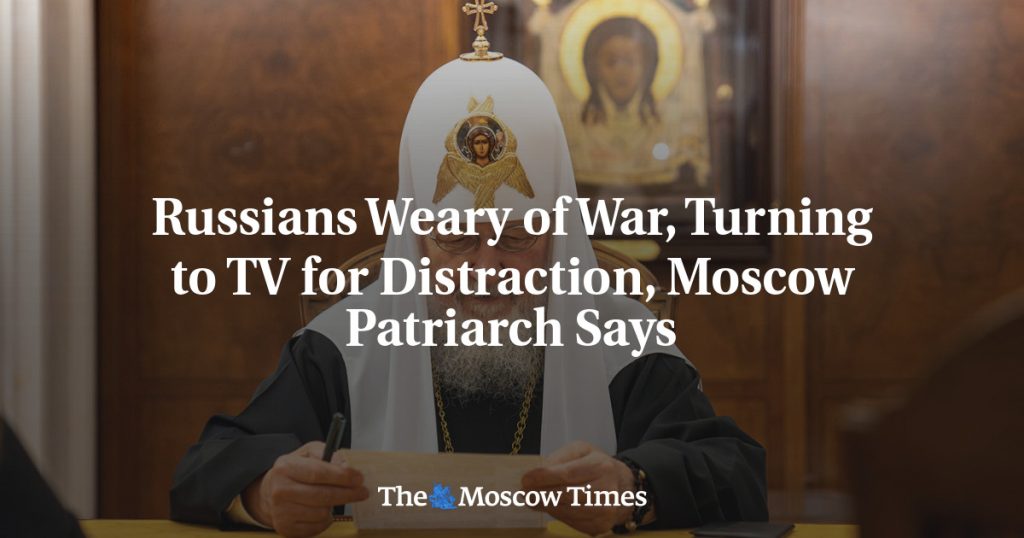Russia’s religious leader, Patriarch Kirill, has expressed concern over the growing trend of war-fatigued Russians turning to entertainment for distraction, which he believes may threaten Russia’s “civilizational identity.” Despite commending those who volunteer their time and money for the military, Kirill lamented that many are not willing to make sacrifices for the ongoing military operations. He noted the stark contrast between the frivolous behavior of many Russians and the harsh reality of the conflict in Ukraine, where lives are being lost.
Kirill highlighted the spiritual implications of this trend, suggesting that it may indicate underlying issues within Russian society. He urged his fellow citizens to reflect on the causes of this behavior and consider whether it poses a threat to Russia’s cultural code or civilizational identity. The Orthodox Church, which publicly supports Moscow’s war in Ukraine, has called on its followers to join the fight against what it perceives as both external and internal enemies. The conflict has been framed by the church as a “holy war,” further emphasizing the seriousness with which it is viewed by religious leaders.
In his book “For Holy Rus,” Patriarch Kirill, who is believed to be a close ally of President Vladimir Putin, made promises of “eternal life” to Russian soldiers who die in combat in Ukraine. This rhetoric serves to further elevate the significance of the conflict and reinforce the narrative of Russia’s fight against forces perceived as threatening to its national identity. The church’s explicit support for the war and its portrayal as a spiritual battle contribute to a sense of unity and purpose among Russians, encouraging them to rally behind the cause.
As the conflict in Ukraine continues to take its toll on both military personnel and civilians, Patriarch Kirill’s statements about the spiritual health of Russian society take on added significance. The juxtaposition between the entertainment-driven distractions of daily life and the harsh realities of war highlights the challenges facing a nation that is experiencing fatigue from prolonged military engagements. Kirill’s call for introspection and consideration of the implications of this trend raises important questions about the direction in which Russian society is headed and the impact of ongoing conflicts on its cultural identity.
The Orthodox Church’s role in supporting the war effort adds a layer of complexity to the situation, as religious leaders align themselves with political agendas and contribute to the broader narrative of the conflict. The framing of the conflict as a spiritual battle heightens the emotional and ideological stakes for all involved, reinforcing the sense of duty and sacrifice that has been central to the Russian response to the conflict in Ukraine. Kirill’s promises of eternal life for fallen soldiers further emphasize the gravity of the situation and the belief in a higher purpose for those who make the ultimate sacrifice.
In conclusion, Patriarch Kirill’s concerns about the impact of entertainment-driven distractions on Russian society reflect broader anxieties about the spiritual and cultural health of the nation. The ongoing conflict in Ukraine has tested Russia’s resilience and sense of national identity, prompting a reevaluation of societal values and priorities. The church’s support for the war effort has added a religious dimension to the conflict, framing it as a moral and spiritual imperative. As Russia continues to grapple with the consequences of prolonged military engagements, the need for introspection and reflection on the nation’s civilizational identity becomes increasingly urgent.














